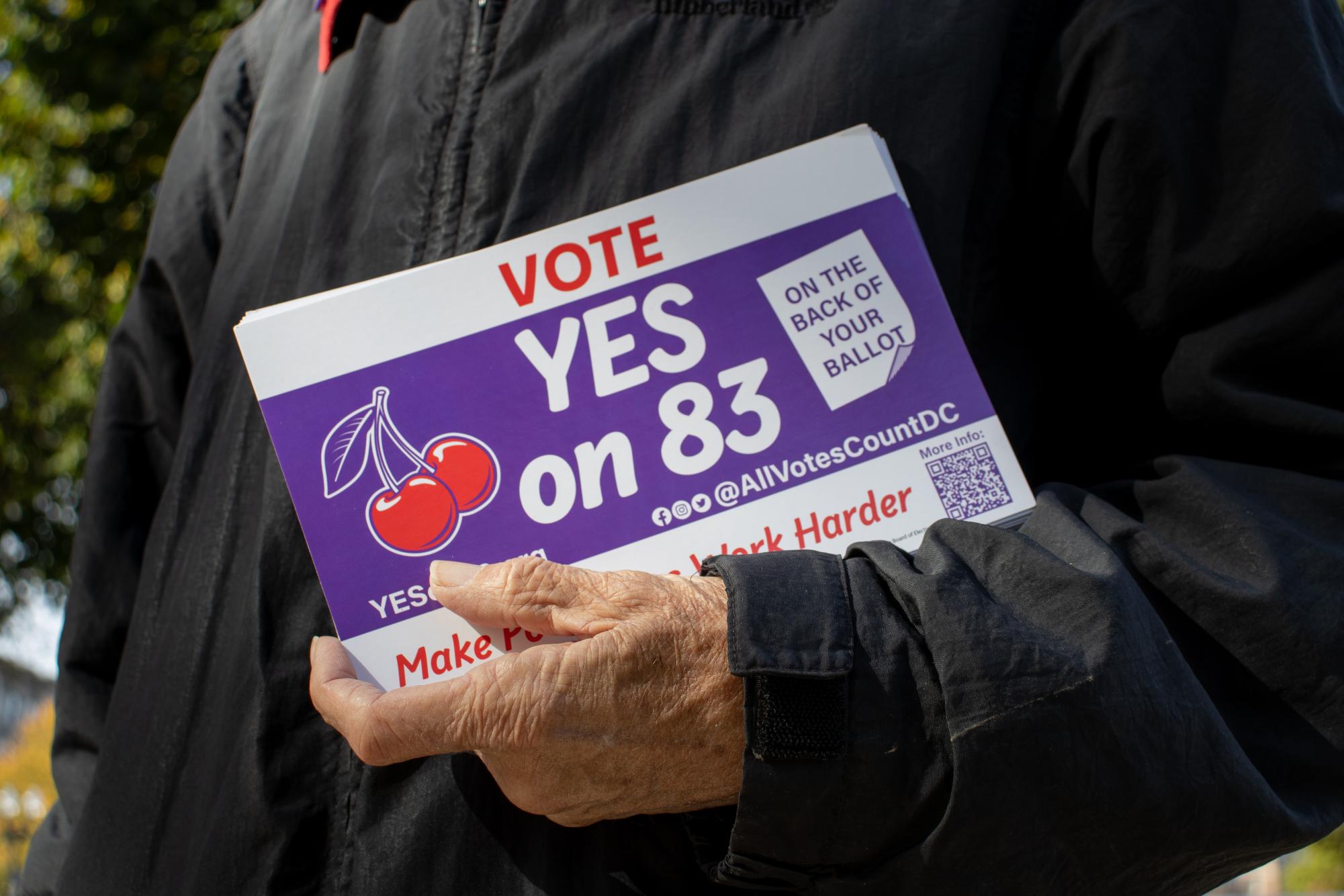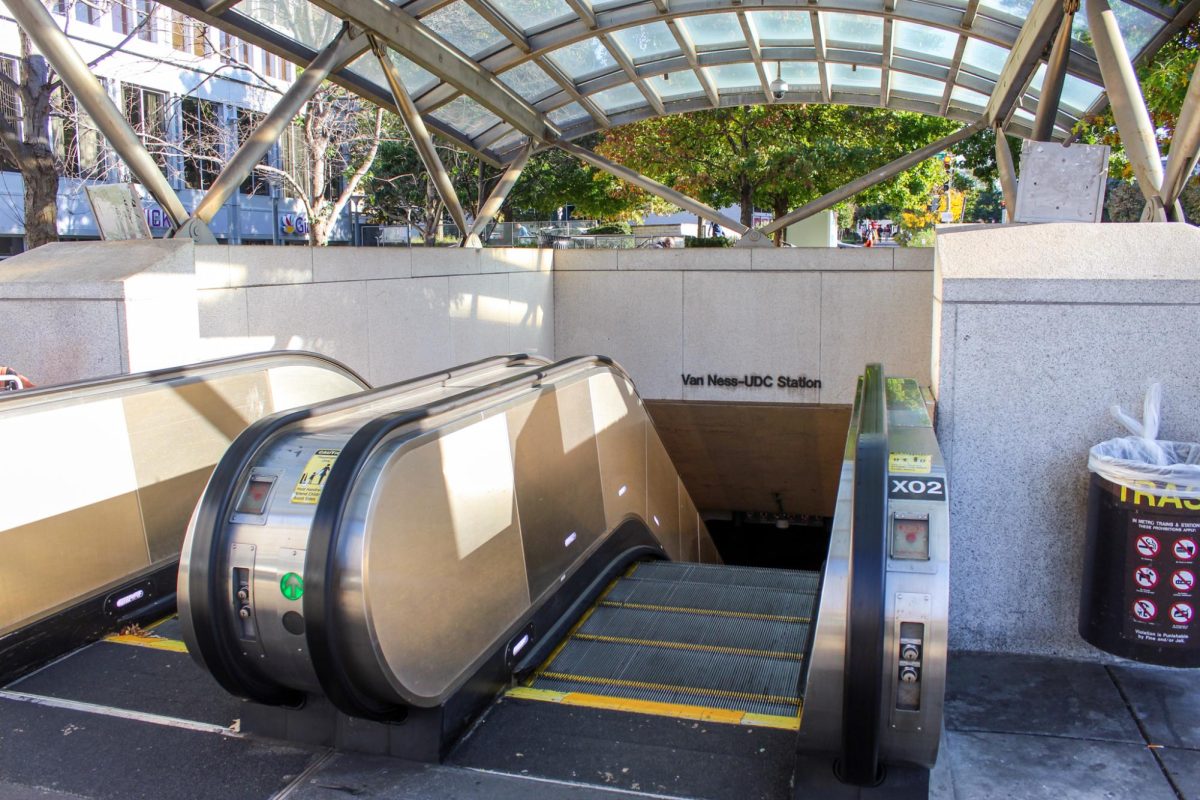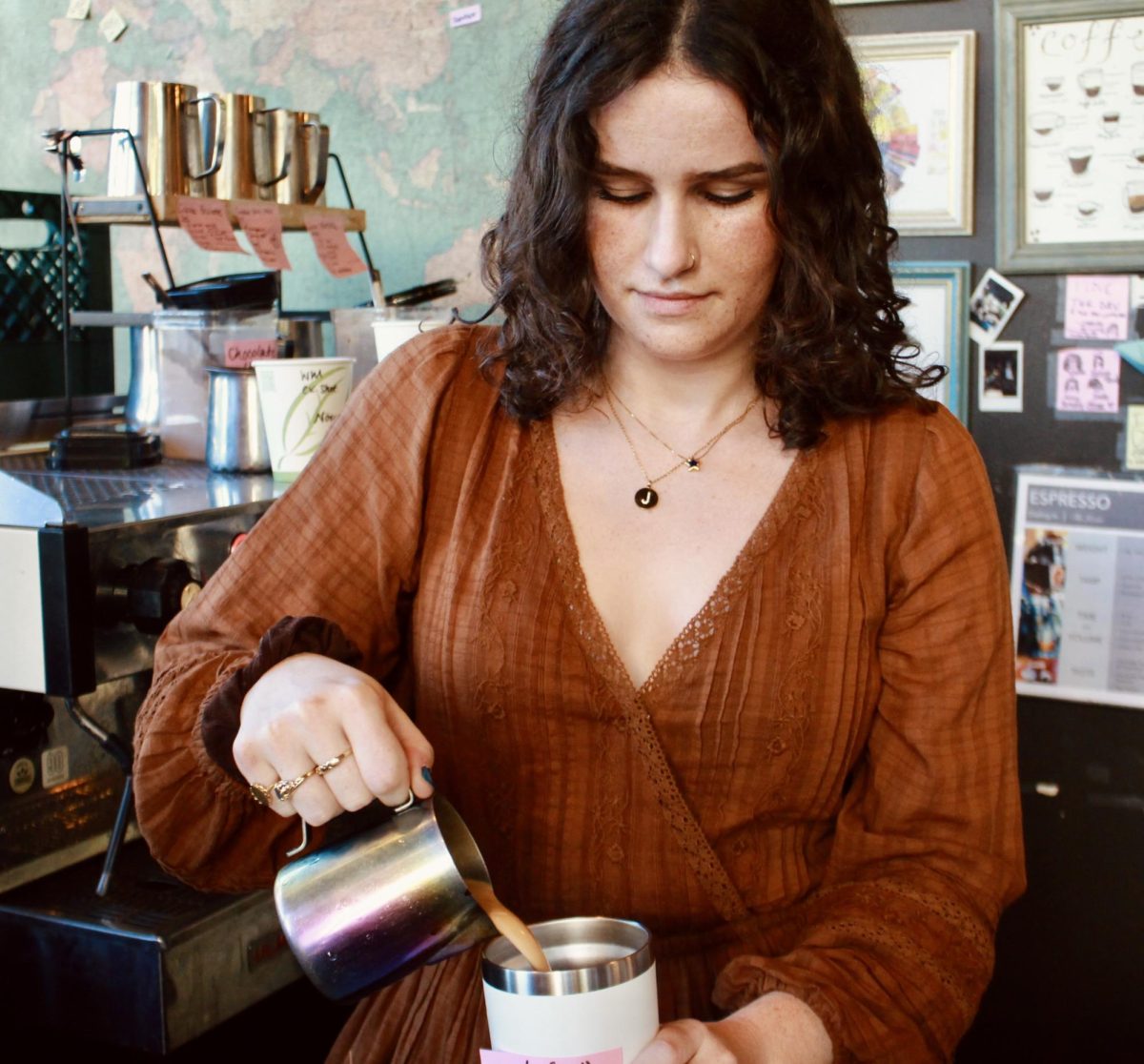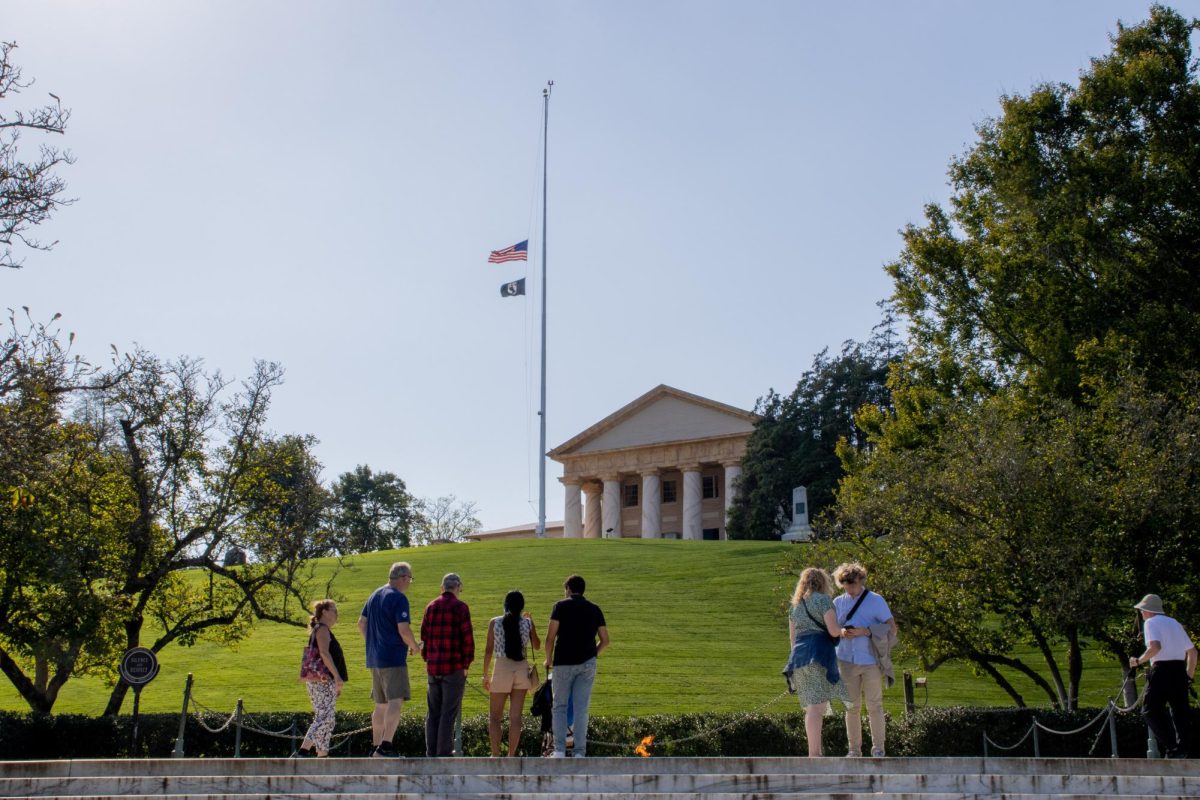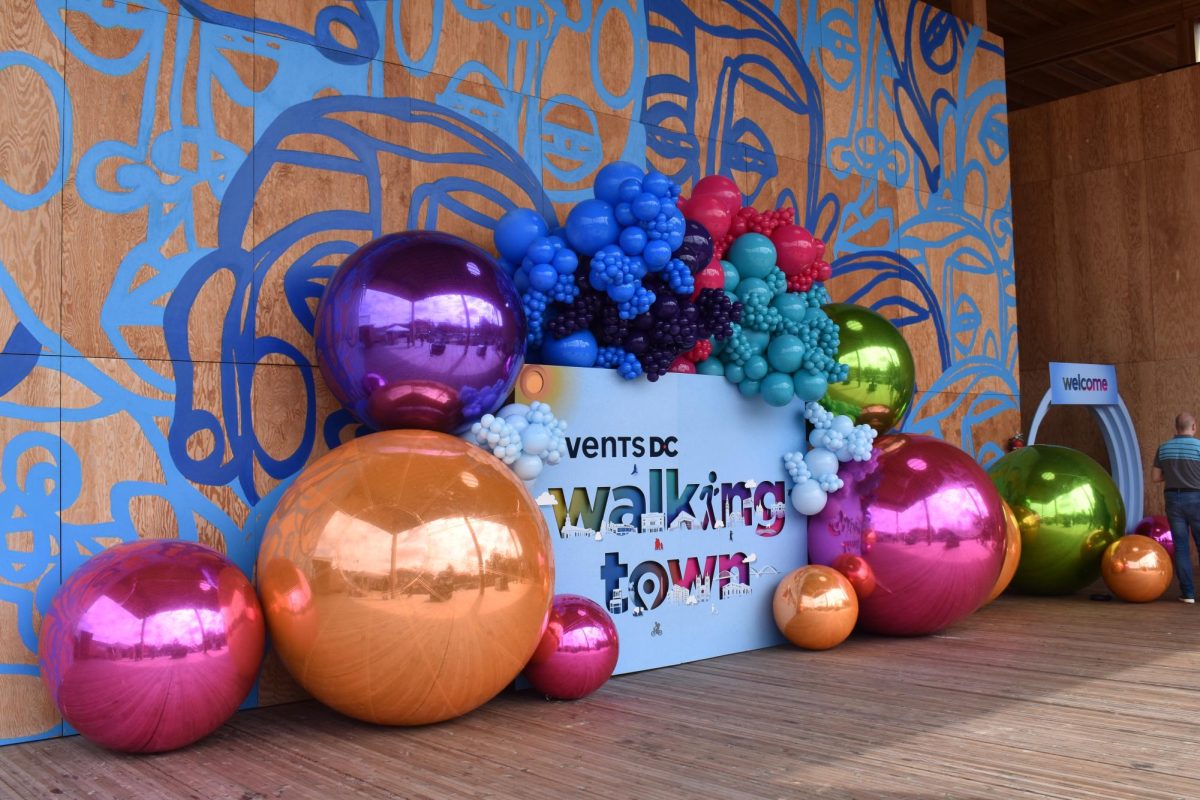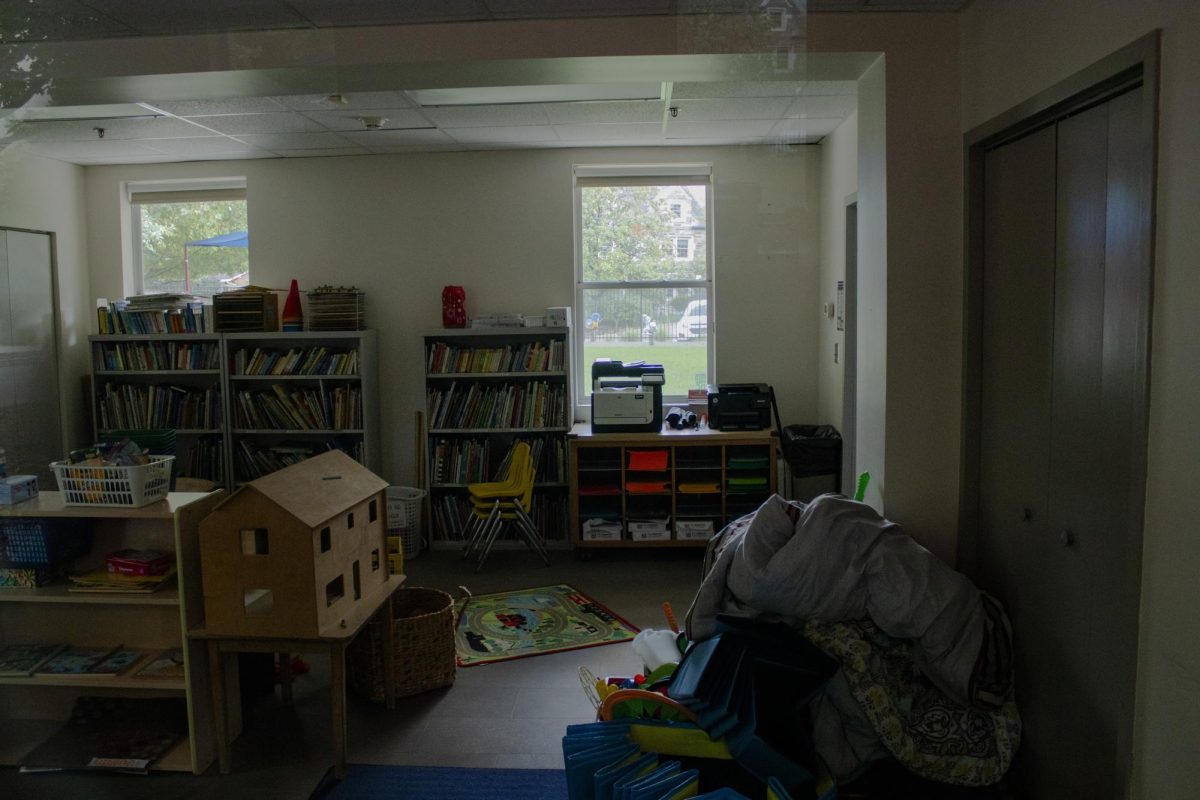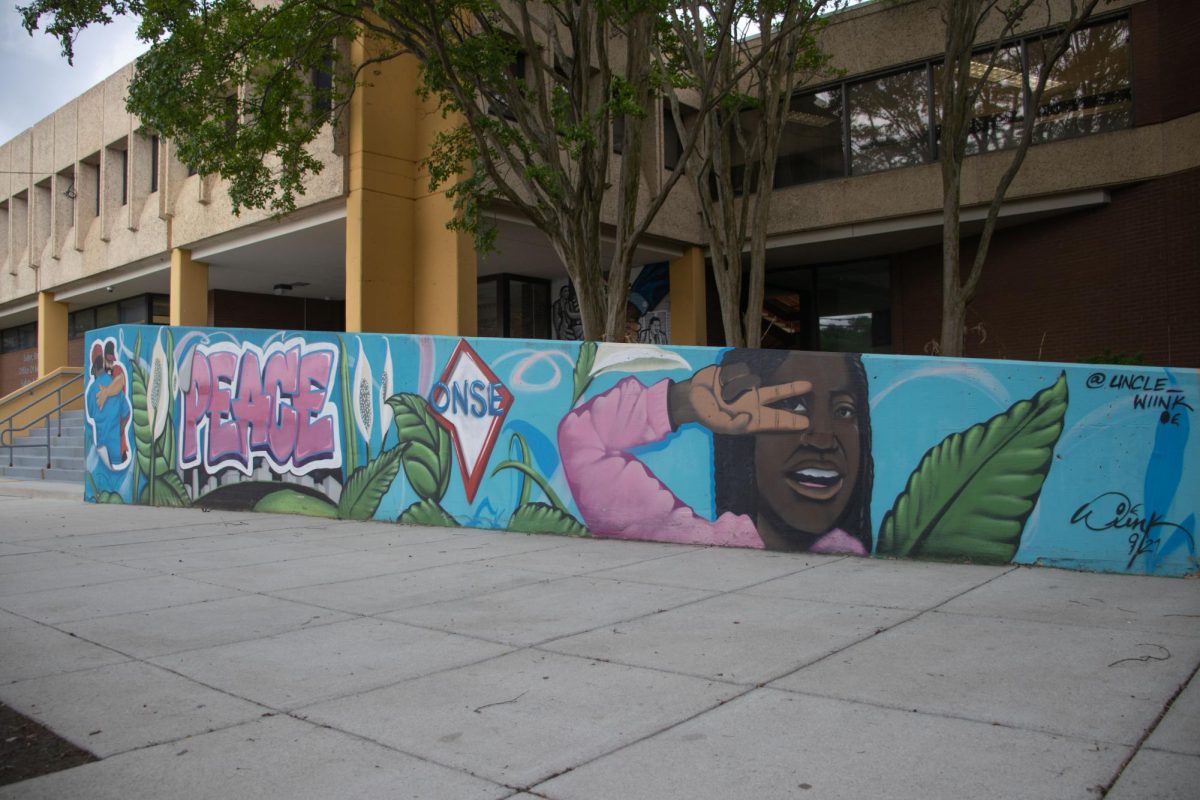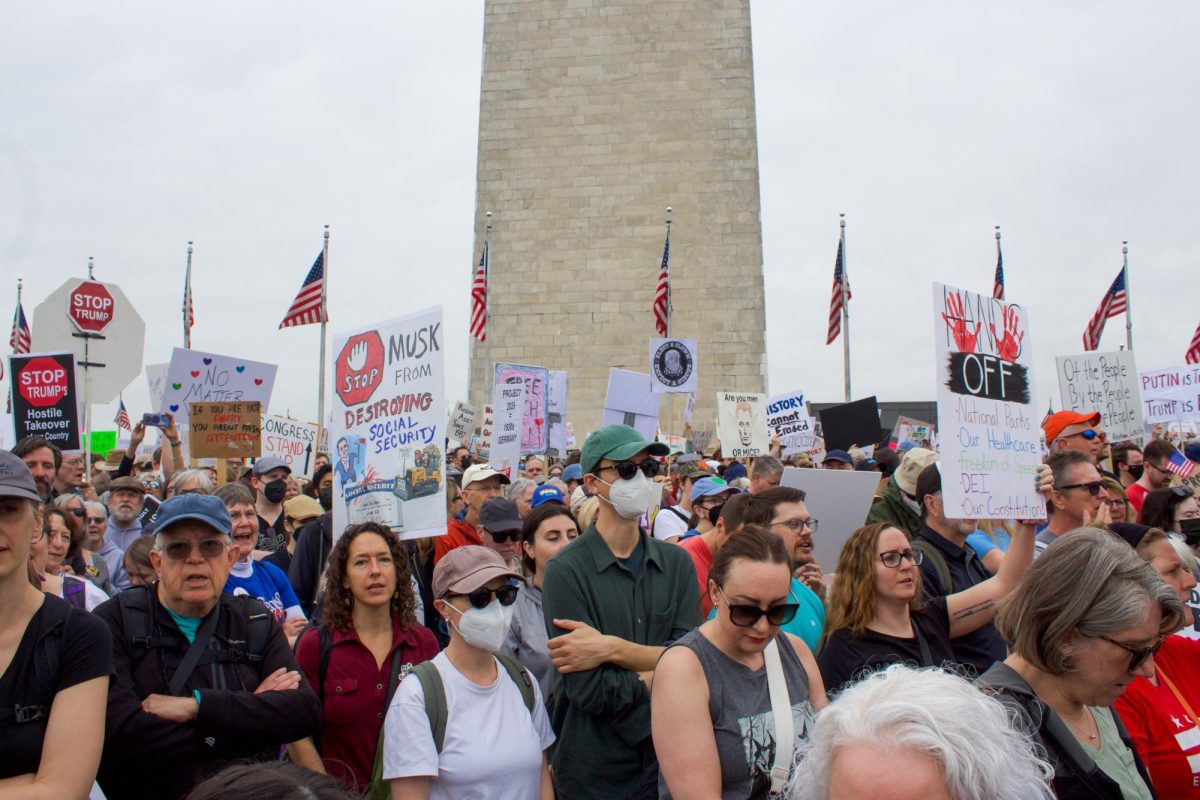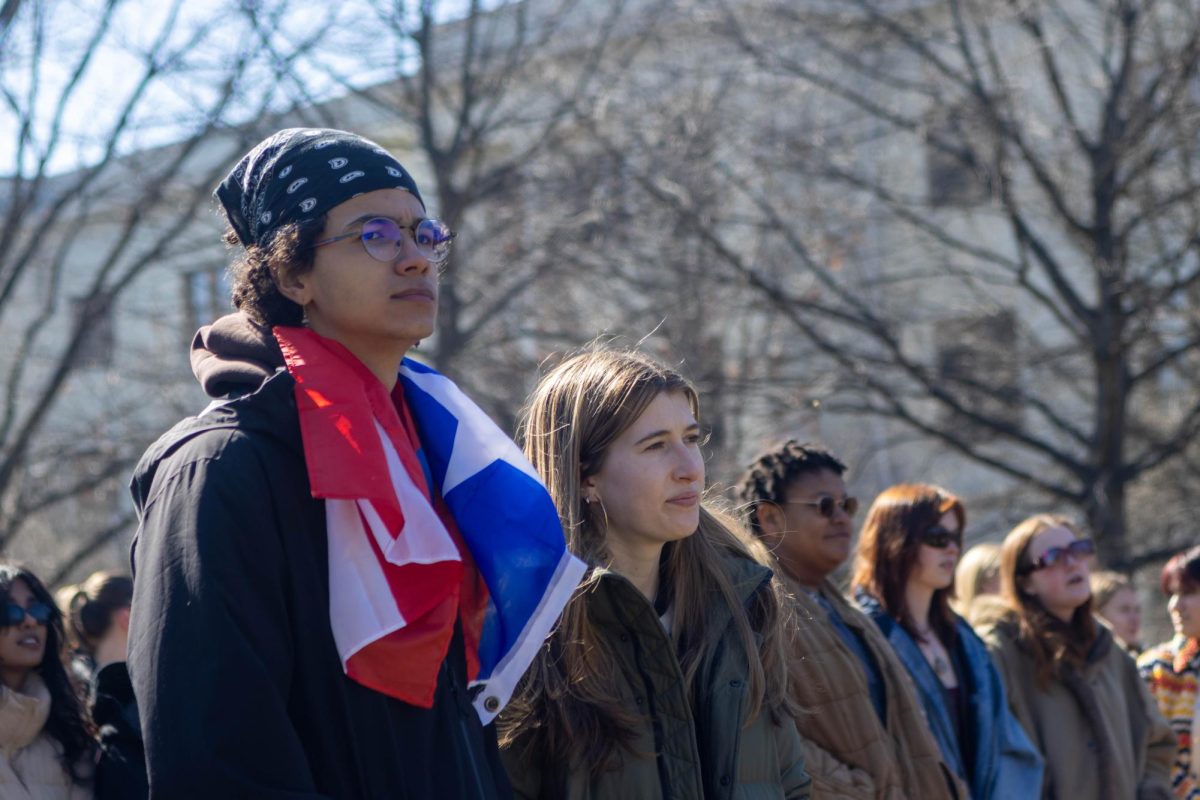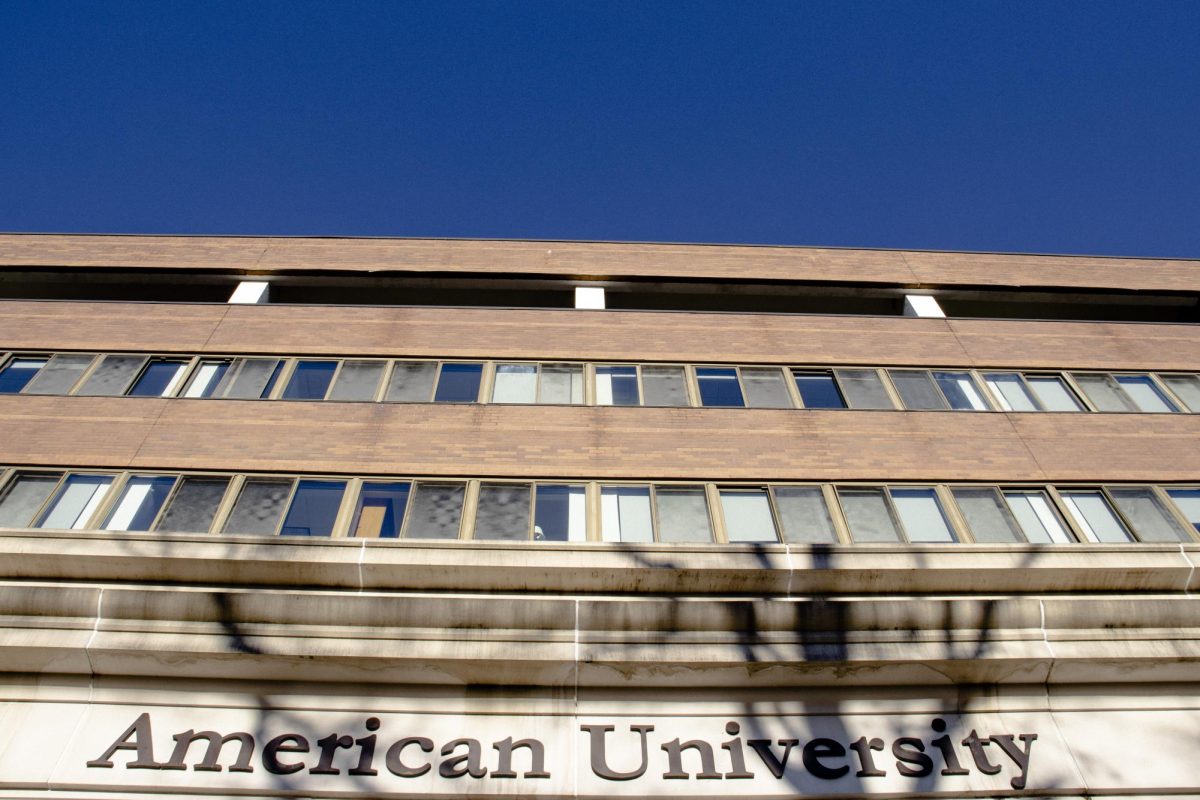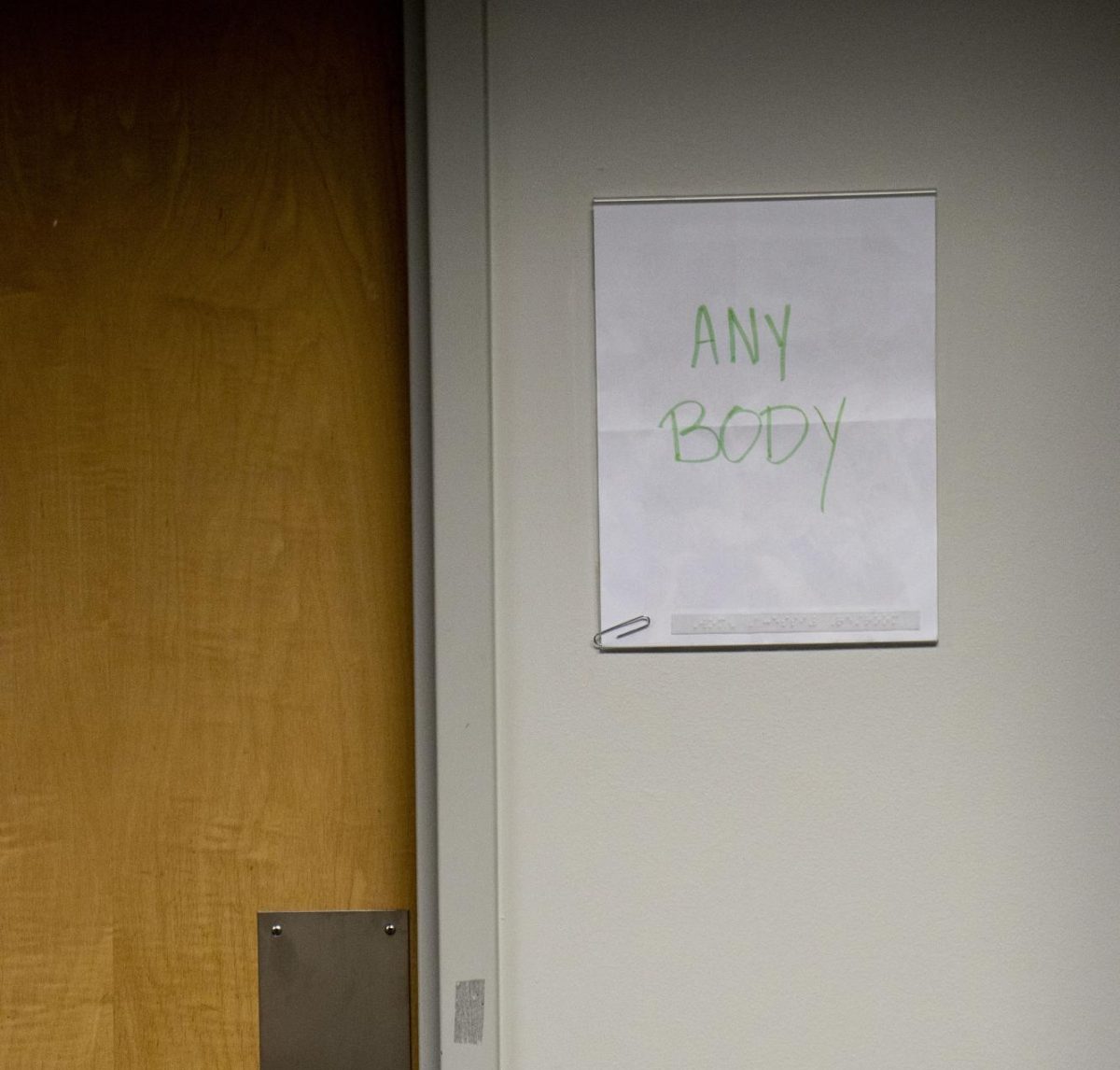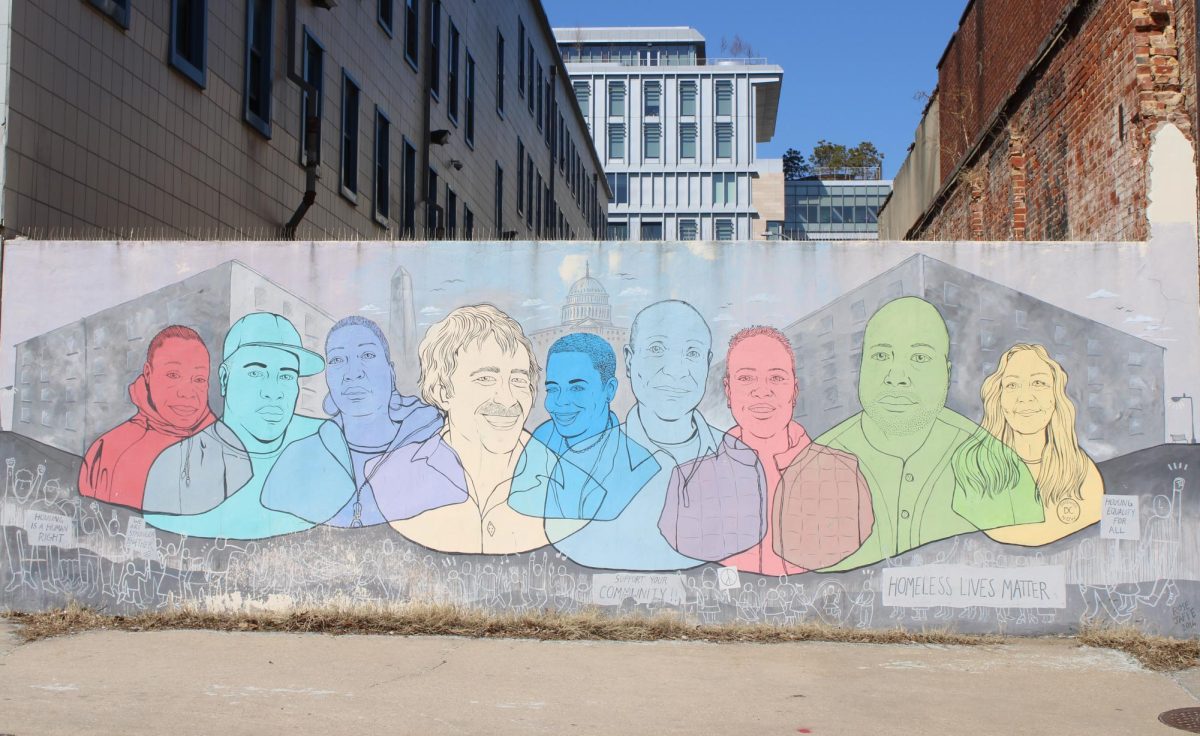Editor’s Note: This article was reported and written before election day, but has been published after. Ballot Initiative 83 has since been approved.
In 2017, Lisa D.T. Rice changed her party registration from Democrat to independent, joining the 82,177 Washington citizens who are registered independents and with other smaller parties, according to Ballotpedia data from October 2022. What she did not realize was this action would bar her from casting a vote in district primary elections, an experience that started her fight for electoral reform in Washington.
Rice said she wanted to protect her constitutional right to vote and advocate for a more inclusive electoral process. On July 1, she filed a petition to implement semi-closed primaries and ranked choice voting in the district, according to the District of Columbia Board of Elections. The board approved the petition in August 2024 to appear on the ballot as Initiative 83, according to the board’s verification report.
The initiative has sparked debate within Washington, raising questions about fair representation and voter accessibility in the run up to the 2024 election.
Initiative 83 aims to introduce a semi-closed primary system to the district, as well as implement RCV. Political advocacy organizations Rank the Vote D.C., FairVote and RepresentUS endorsed the campaign supporting Initiative 83, led by Make All Votes Count D.C. Deirde Brown led the opposition campaign, Vote No on Initiative 83, and the Democratic Party of Washington, D.C., and local activist Renée L. Bowser supported it.
The proposal would allow unaffiliated and independent voters to choose a primary election to vote in, according to FairVote. The other aspect of the initiative, RCV, aims to allow voters to rank candidates for a particular office in order of preference, according to Ballotpedia. The candidate that has the most people rank them first is declared the winner. If they do not receive the majority, the candidate with the lowest number of first-preference votes is eliminated. This process continues until a candidate has won with a majority of the votes.
This was not the first push to implement RCV in the district. In 2021, Councilmember Christina Henderson, alongside a number of peers, introduced the Voter Ownership, Integrity, Choice, and Equity Amendment Act, an effort to introduce RCV to general elections in the district. While the act did not make it out of committee, Rice said it inspired her own push for RCV three years later.
Semi-closed primaries
On June 4, primary election day in Washington, Rice stood outside numerous polling locations wearing a sandwich board that read, “I cannot vote today,” in big, bold red letters, followed by the words, “Ask me why” in black.
Rice said she talked with people of all ages at the polling center, some as young as 9 years old, and explained to them how she and other independents are kept from voting in primary elections.
One of her points was that all voters should be able to participate in the primaries because they’re publicly-funded.
“Most people did not fully understand and did not fully realize that the primary elections, just like a general election, are funded by taxpayer money,” Rice said.
Once Rice talked with voters, many agreed with the argument, she said.
Since 1973, the district’s closed primaries require voters to register with one of the recognized parties in Washington to vote in primary elections, as laid out by the D.C. Board of Elections.
Rice said there are two main parts to the initiative.
“Number one is to let independents vote in our taxpayer-funded primary election,” Rice said. “And number two is to implement ranked choice voting in primary and general election cycles.”
She said these changes would affect independents, as well as the general election system in the District.
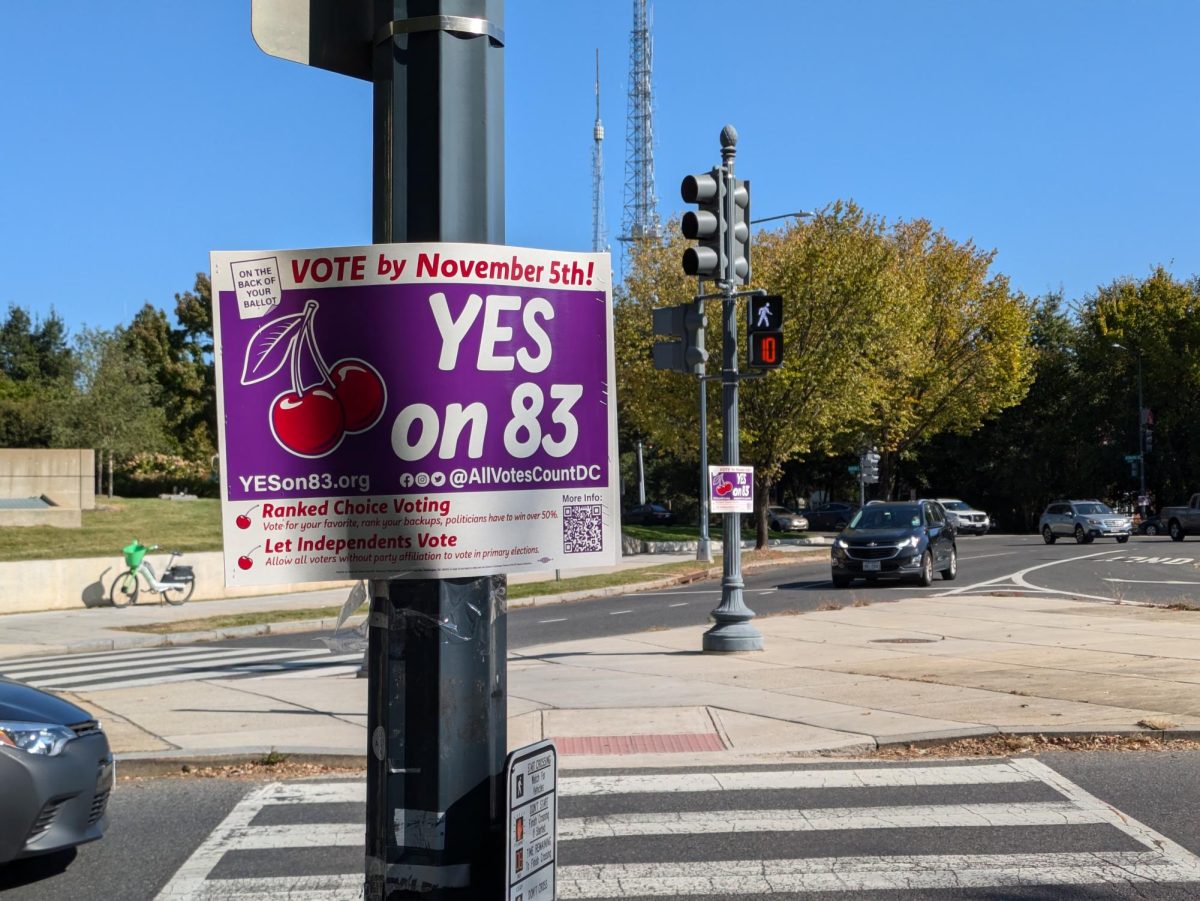
“What we are saying, and this happens all over the country, is allow independents — on Election Day or whenever mail ballots are being mailed out — allow us to choose a party primary to vote in so that we can exercise our constitutional right to vote,” Rice said.
She said independents’ issues align with the policies rather than a certain party, and voters should not have to support a specific party to see legislators promote the policies voters want passed.
Younger voters are also registering as independents at a greater rate than previously observed. According to 2018 Tufts Center for Information and Research on Civic Learning and Engagement pre-midterm poll results, one-third of people between 18 and 24 identified as independent.
According to 2024 Pew Research data, younger voters are more likely to align themselves with political ideologies as opposed to major political parties.
Ruby Coleman, a first-year graduate student at American University, said similar electoral reforms drew her attention to Washington’s Initiative 83. She currently interns with Rank the Vote, an organization that advocates for RCV across the country, and said seeing people in other regions advocate for the reform made her realize its potential role in the district.
“Because D.C. is so overwhelmingly Democratic, it means that most of the elections are decided in the primary, and independent voters don’t really get a say,” Coleman said.
She said in Washington especially, there are a number of reasons someone might identify as an independent voter.
“A lot of people are journalists,” Coleman said. “They don’t want to identify with the political party because they don’t want to seem biased. A lot of people don’t feel represented by either political party and don’t want to be forced to officially align.”
Kevin Hancock, director of strategic litigation at Campaign Legal Center, said certain demographics of voters are disproportionately affected by closed primaries because they are registered as independent. He said the initiative strengthens democracy by giving more voters a voice in crucial elections where the general election is often decided in the primary race, like in the district.
“For example, Hispanics, young voters and veterans make up a significant portion of registered independents, meaning that these voters are disproportionately disenfranchised in closed primaries,” Hancock said. “Instead of predicting participation in democracy on political party membership, all voters should be able to have a voice in all elections.”
However, creating semi-closed primaries goes against Washington’s Home Rule Act, which states that primaries are partisan, Brown said.
“In other words, each of the parties get to nominate a candidate to represent them and their [party’s] values in the general election,” Brown said.
Brown said in order to participate in the primaries and pick a candidate who will represent the party, people must become a member of that party. Residents have the freedom to associate with whichever party they like, but Brown said she and other members of the Vote No on Initiative 83 campaign argue independents should not take part in picking the candidate that will represent a political party they are not a part of.
Ranked choice voting
One of the leading arguments for RCV is that it would ensure winning candidates are supported by a majority of the voters, and would encourage politicians to run a more civil campaign. According to an article in the 2023 Journal of Representative Democracy, under RCV, politicians are not only campaigning for a first preference spot, but for second and third preference spots as well.
“If a candidate is the first choice of a majority of the voters, that candidate wins the election,” Hancock said. “But if no candidate gets the majority of the vote, the candidate with the least amount of support is eliminated, the second choice support for that eliminated candidate is redistributed and this process continues until a candidate wins more than half of the vote.”
RCV helps to ensure that election outcomes truly represent the majority view of citizens, Hancock said. He added that it is common in the district for candidates to win with much less than a majority of the votes and that RCV would ensure that winning candidates receive broad community support.
“People in D.C. have won with far less than 50% of the vote, and it’s not fair to elect a politician that isn’t chosen by the majority, in my opinion,” Coleman said.
For example, Wendell Felder, a 2024 election candidate for Ward 7 councilmember, won the 2024 primary election with 23.69% of votes, according to the D.C. Board of Elections primary results from June 2024.
In a study conducted by the McKinley Research Group following Alaska’s first use of RCV in their 2022 election, 52% of voters said they felt their vote mattered more with the use of RCV.
“We refer to it as a bold step to make politicians work harder for us,” Rice said.

Will Mantell, director of communications for FairVote, said RCV encourages elected officials and candidates to campaign to a wider group of voters.
Members of FairVote have been studying and advocating for election reform across the country, and in the last decade have focused on RCV as they believe it is a reform that works, Mantell said.
“It’s a question of delivering a nominee or an elected official who actually represents the majority of us,” Mantell said.
But for Brown, voting for Ballot Initiative 83 meant a vote for discrimination in voting. She wanted voters to be informed of their choices and said the RCV format is overly complicated for some voters. This could lead to an abundance of “spoiled” ballots, which are ballots that are marked incorrectly.
According to a 2016 RCV article in the Journal of Urban Affairs, RCV obscures racial group interests for voters due to its complicated nature. Brown said RCV disproportionately affects the voting of “Black and brown” communities, as well as seniors and citizens with disabilities. She said RCV is geared toward predominantly white voters living in affluent neighborhoods who turn out to vote at higher rates and complete their ballots with higher accuracy.
“There are now 10 states who have banned ranked choice voting, citing that it’s too convoluted and confusing,” Brown said.
In October 2024, RCV was used in 14 states nationwide, two of which used RCV for all statewide elections, according to Ballotpedia. In addition to the district, RCV was on the ballot in Nevada, Oregon, Colorado and Idaho.
As for Rice, she was excited by the opportunity to make an impact in the country’s political system.
“I want [the people] to know that this is a really exciting time and they have the opportunity to make change, have politicians work harder for our votes, get politicians in office who are accountable for the majority of us, which is really what we want to do,” Rice said. “And we’re bringing this to the people as a ballot initiative so that the people of D.C. can decide.”
This article was originally published in Issue 35 of AWOL’s magazine on November 19, 2024. You can see the rest of the issue here.



